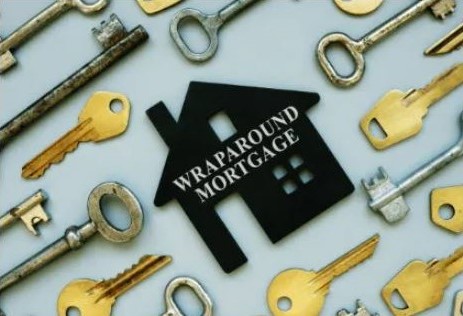Understanding Wraparound Mortgages: A Unique Home Financing Approach

When navigating the complexities of real estate financing, unique structures such as the wraparound mortgage offer alternative pathways for both buyers and sellers. But what exactly is a wraparound mortgage, and how does it function? Let’s dive into what makes this method appealing, along with the potential benefits and risks it presents.
What Is a Wraparound Mortgage?
A wraparound mortgage is an alternative home financing option where the seller maintains their existing mortgage while creating a new loan that “wraps around” the existing amount owed. Unlike conventional home sales where buyers secure mortgages through banks or lenders, buyers in a wraparound agreement make their monthly payments directly to the seller. The seller, in turn, uses part of those payments to continue paying off their original mortgage. This type of mortgage often comes with higher interest rates than traditional loans, giving sellers an opportunity to profit.
How Does a Wraparound Mortgage Work?
In a typical real estate transaction, a mortgage lender provides the loan for the home purchase, and the seller uses the proceeds to settle their mortgage. With a wraparound mortgage, however, the seller retains the original mortgage and acts as the lender by providing financing to the buyer.
Here's how it works:
- Negotiation of Terms: The buyer and seller agree on a down payment, loan amount, and interest rate, and sign a promissory note that outlines the terms of the mortgage.
- Ownership Transfer: Once the transaction is finalized, the seller transfers the home’s title and deed to the buyer. Although the seller no longer owns the property, they continue to pay the original mortgage.
- Payment Process: The buyer makes monthly payments to the seller, who allocates a portion of those payments to their existing mortgage.
A critical point is that the seller's mortgage must be assumable for this arrangement to work. Otherwise, the original lender could view the transaction as a violation of the loan terms.
The Pros and Cons of Wraparound Mortgages
While wraparound mortgages can offer significant benefits, they come with specific risks for both buyers and sellers. Here’s a closer look:
- Benefits for Buyers
- Easier Qualification: Buyers who might not qualify for a traditional mortgage due to credit issues or limited financial history may find wraparound mortgages more accessible.
- Lower Closing Costs: Direct dealings with the seller can eliminate certain lender fees, reducing overall closing costs.
- Benefits for Sellers
- Profit Potential: Sellers can profit from the interest rate difference between their existing mortgage and the higher rate charged to the buyer.
- Increased Buyer Pool: This arrangement can attract buyers who struggle to qualify for conventional loans, making it easier for sellers to sell their property.
- Risks for Buyers
- Higher Interest Rates: Sellers usually set the interest rate for the wraparound loan, which is often higher than market rates.
- Foreclosure Risk: If the seller fails to make payments on the original mortgage, the lender can foreclose on the home, even if the buyer has consistently made their payments. To mitigate this, buyers can request a clause in the agreement allowing them to pay the original lender directly.
- Risks for Sellers
- Lender Approval: Non-assumable loans can halt the process, as lenders often demand full repayment when a property is sold or transferred.
- Collecting Payments: Sellers assume the responsibility of collecting payments from the buyer and managing their original mortgage obligations.
- Risk of Foreclosure: If the buyer defaults, the seller must continue making payments or risk foreclosure.
Final Thoughts: Weighing the Benefits and Risks
A wraparound mortgage can be a creative solution that meets the needs of both buyers unable to secure traditional financing and sellers looking for flexible sale options. However, this type of agreement involves distinct risks, including potential complications with lender approval and the chance of foreclosure. Both parties should seek advice from a seasoned real estate attorney to navigate these complexities and create an agreement that protects their interests.